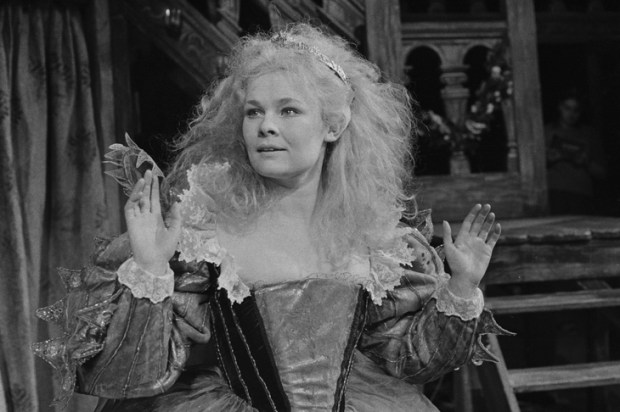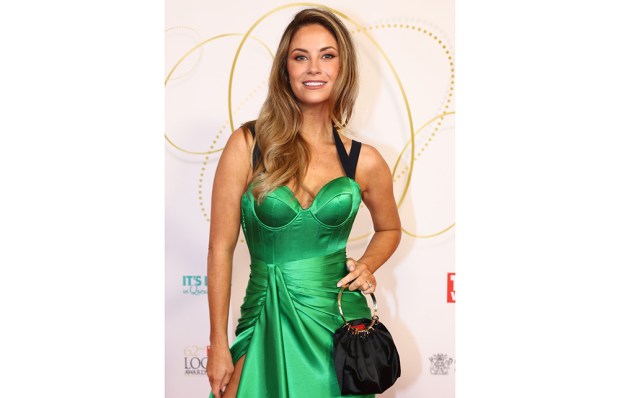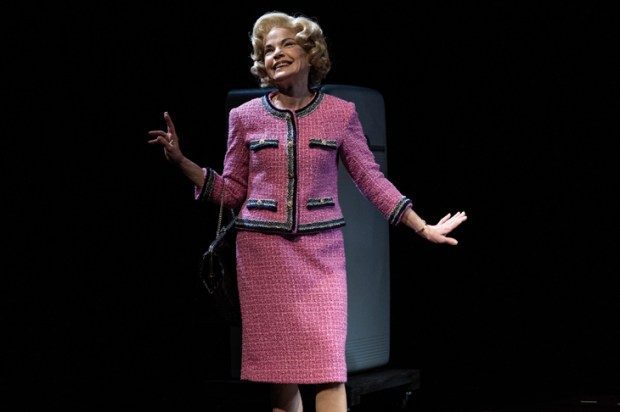There is a Roman saying, ‘What the barbarians started the Barberinis completed’ with reference to one of the great dynastic papal families. Macaulay said that Roman Catholic Rome had survived the Vandals and the Goths and that it would survive when some visitor from New Zealand sketched from the broken arch of London Bridge the ruins of St Paul’s.
Well, London Bridge has not fallen down but what a strange coincidence that the film of Conclave from the novel by Robert Harris and with Ralph Fiennes giving one of his most glittering performances as the dean of the princes of the church was in the running for the Oscars as Pope Francis may well lie dying from double pneumonia so that there will be another conclave and the white smoke will rise up to indicate his successor.
It was twelve years ago that Jorge Mario Bergoglio, the one-time head of the Argentine Jesuits, took the name of one of the greatest of all saints. Back in his Jesuit days he had betrayed a couple of radical priests to the authorities with dire and deadly effects. Did this make him a milder and a more merciful pontiff? Probably. He would say, ‘Who am I to judge?’ about questions of sexual practice. The difference between him and his abdicating predecessor Pope Benedict gave a fascinating perspective to the film The Two Popes with the two contrasted pontiffs in dynamic interplay played by two great actors: Anthony Hopkins as Benedict and Jonathan Pryce as Francis.
His time as Pope has been characterised by a deference to conscience and some tardiness in solving the Vatican’s monetary corruption though eventually there was the prosecution and conviction of Cardinal Angelo Becciu.
The film of Robert Harris’s Conclave won only one Oscar on Monday, Peter Straughan for Best Adapted Screenplay. Harris is arguably the most formidable thriller writer since John le Carré though he concocts his higher crime yarns in the vicinity of history. So Fatherland transpired in a Germany that had won the war, Imperium had that great orator Cicero as a sleuth, and The Ghost reimagined the Tony Blair years (filmed by Polanski with Ewan McGregor and Pierce Brosnan as the former prime minister). An Officer and a Spy dramatised the Dreyfus Affair with a swift brilliance and Munich went on to become a streamer with Jeremy Irons as the Neville Chamberlain of ‘Peace in our Time’ fame. His recent book, Act of Oblivion, was about a hunt for the regicides of Charles I.
You forget the denouement of Robert Harris’s books because the detail is so rich and the style has such a swooping brilliance and so it is with Edward Berger’s brilliantly sustained Conclave. Anyone who looked at his version of All Quiet on the Western Front will remember that he is a wizardly director and compositional master and here he has been handed a gift of a plot and the enormous advantage of a great actor, Ralph Fiennes.
The pope is dead and Fiennes as general manager of the Curia, the electing cardinals, has to try to work out what is true and what is treacherous or self-interested – or life-denying – in this cluster of cardinals. Who has been bribing whom, has someone fathered a child many years ago, and what is a reasonable thing to do with the kind of traditionalist who believes gays deserve prison in this life and hell in the next and who thinks Muslims are animals who must be fought and defeated and who can nevertheless quote Yeats’ ‘The Second Coming’.
It is a beautifully made film. Stanley Tucci is urbane and shrewd in articulating a sane pluralism and Sergio Castellitto is a forceful representative of the forces of reaction. And what – if anything – did the late pope fear from John Lithgow’s mild American?
Amidst the cameos we get Australia’s Jacek Koman – remember him as Barrie Kosky’s Tartuffe years ago? – as an accusatory bishop. There is also Isabella Rossellini as a wary and credible nun.
It’s all done with a fine sense of enshrouding mystery and human fallibility as well as a sense of the rich swish of a multilingual world with characters switching effortlessly from Latin to Italian to English to Spanish in a way that has an absolutely idiomatic assurance.
At the centre of all this is Ralph Fiennes who transfigures the central figure of the investigating dean. He inhabits the role of a good man who believes he no longer has any depth of spirituality and wishes he could be a simple priest rather than a religious lord of cross-examination. But he captures magnificently the high courtesy and relentless drive to find the truth in a supremely disciplined man.
It is one of the greatest portraits you will ever see of a driven detective who at one moment in Conclave sobs uncontrollably but who is also vibrantly eloquent as he addresses the conclave in the traditional languages of the Holy See and does so with a resplendent grandeur while speaking on behalf of doubt and against certitude.
Conclave is a film that maximises at a level of language what Newman – who was a master of its articulation in his prose (James Joyce thought he had no equal as a stylist) – called the beauty of holiness but this is most potently enacted by Fiennes who exhibits the technique of a great classical actor so that he was unlucky not to win the Oscar because his performance is so grave and so credible that we are not primarily aware of the acting.
Late in the piece Conclave features a shocking explosion. Then, almost at the end, there is a twist in this strange winding stair of a homage to the devotion and betrayals of the church that seems a bit mad. But even so it does not irrevocably damn this tense virtuosic film.
It belongs with Ralph Fiennes’ very greatest performances like his Cockney overlord of In Bruges or The Grand Budapest Hotel where he has been compared to the younger Rex Harrison or to his extraordinary inhabitation of Jack Tanner in the National Theatre production Man and Superman where once again he embodied style and transcended it.
Oscars aside, Conclave is a winner of a film with a constant apprehension of loss. Pope Francis has been loved by those who treasured the humanity of his hesitations. One of the last things he did when he capable of it was to telephone a church in Gaza.
Got something to add? Join the discussion and comment below.
You might disagree with half of it, but you’ll enjoy reading all of it. Try your first month for free, then just $2 a week for the remainder of your first year.













